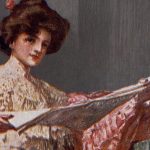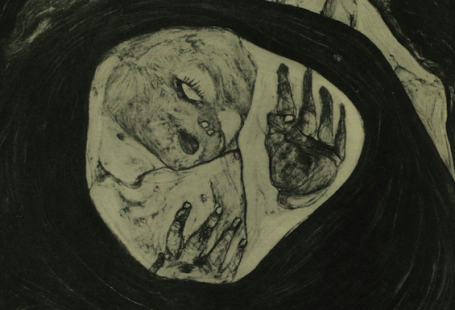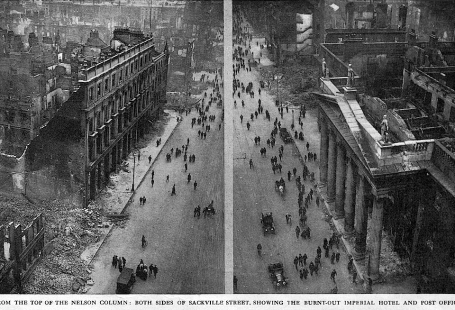For just over a month in the summer of 1934, the Caravan Club in Endell Street, Holborn, was ‘London’s Greatest Bohemian Rendezvous.’ A safe space for society’s outcasts, it was a temporary haven for London’s marginalised LGBTQ community, home to an eclectic mix of clientele, from cabaret performers to bright young things.
But in the early morning of 25 August 1934, the music ended. London’s Caravan Club was raided by the Metropolitan Police, whilst both its owners and members faced criminal charges.
In this special blog, using newspapers from The Archive, we trace the story of the Caravan Club – how it was raided, and how its members faced persecution – in this fascinating strand of London’s LGBTQ history.
Register now and explore The Archive
Tip: try not to limit your search to the place where an event took place. For example, the Caravan Club raid took place in London, but we found it reported in regional newspapers across the country.
The Raid
Opening on the 14 July 1934, by the morning of 25 August 1934 the Caravan Club on Endell Street, running east of Covent Garden and just south of Tottenham Court Road, had 445 members.
What the punters did not know as that Saturday night turned into Sunday morning was that their safe haven was about to become the target of a Metropolitan Police raid, the police in question disguised as fellow club attendees.
The Cafe de la Paix | The Bystander | 26 June 1934
Inspector Champion, speaking at the hearing in September 1934, described the scene (Nottingham Evening Post):
The dance floor was crowded with people, and the whole room was so packed that the officers were unable to take up their positions as instructed without being noticed. Among those dancing on the floor were two men who were dancing in an indecent way. Two other men dancers were embracing each other.
Homosexuality at that time in the United Kingdom was illegal; and so the police force in the 1930s reflected the overwhelming prejudice against the LGBTQ community. Consequently, when Sergeant Miller was ‘asked by the magistrate if there was any doubt at all things he saw in the club were disgusting…he replied: ‘There is no doubt at all.”
Cabaret at The Dorchester | The Bystander | 29 May 1934
It was not just the sexuality of the club members which got the adverse attention of the authorities. According to the Nottingham Evening Post, Detective Sergeant Dorsy saw a young woman who had ‘fallen down.’ She had not fainted, according to him, her unsteady gait was due to her drunkenness. Female intoxication was something of a taboo in the 1930s – as was a young man who called himself ‘Josephine.’
One P.C. Mortimer, as detailed in the Nottingham Evening Post, had heard some members of the club discussing their ‘camp names.’ One of these men was Frederick James, who called himself ‘Josephine.’ James’s defence counsel Mr Graham Brooks later interrogated Mortimer, asking if he had seen his client with powder on his face or with ‘blackened eyebrows.’ Mortimer denied that he had; although other men in the club were seen similarly made up.
The Monte Carlo Follies | The Bystander | 16 October 1934
As a consequence of the August raid, over one hundred people, both men and women, were arrested under varying charges. By early September, all of the accused attended the hearing, held at Bow Street Police Court.
The Hearing
Held at Bow Street Police Court, just down the road from the Caravan Club at Endell Street, the hearing took place on 5 September 1934.
The case drew a large amount of spectators, as described in the Nottingham Evening Post:
The road running opposite the Opera House opposite the court was filled with people. Many workers of Covent Garden market swelled the crowd…Some of the defendants who arrived early walked up and down opposite the court talking to their counsel and solicitors. Some of the crowd jeered people who arrived at the court in taxis.
But the Crown faced some difficulties in prosecuting the case, as 76 of the defendants were soon discharged, attending the court for only a few minutes. Mr R.L. Jackson, for the prosecution, explained:
It was very difficult, he said, for 14 officers to get evidence against all these people, and in the case of many of them there was no evidence one way or another against them….He then read out a list of 76 of the persons, and Mr Dummet [the magistrate] told them that they were free to leave the court if they wished to do so. They then filed out.
Nottingham Evening Post | 5 September 1934
So with ‘no evidence offered’ against 76 people, 27 defendants in total remained, arraigned for trial. The Nottingham Evening Post relays how 25 of them were charged with ‘aiding and abetting in the commission of the alleged offence,’ the alleged offense being laid at the feet of principals Jack Rudolph Neave, a 48-year-old phrenologist, and William Joseph Clifford Reynolds, the 24-year-old proprietor of the Caravan Club.
These two were charged with ‘having unlawfully kept and maintained the Caravan Club, Endell Street, for the purpose of exhibiting to view of any persons willing to pay for admission divers lewd, scandalous, bawdy and obscene performances and practices to the manifest corruption of the morals of his Majesty’s subjects.’
One will of course note that the charge does not outwardly allude to any practices of homosexuality – even in a legal setting, it is all euphemism and innuendo. The defendants were guilty of upsetting the status quo, and Neave, one of the principal defendants, even more so, as he presented as a ‘curious figure with his long hair hanging down well over his shoulders’ (Western Daily Press).
Nottingham Evening Post | 19 September 1934
And so with the hearing done, the case moved to trial.
The Trial
The trial of the Caravan Club defendants concluded at the end of October 1934. Evidence was offered about what officers had seen during their August raid, whilst according to the Nottingham Evening Post ‘all the defendants pleaded not guilty.’
The defendants were so numerous at the trial, that they had to be distinguished with placards hung from their neck by a piece of string. But some of the defendants fought back with spirit. One Nancy Saville was faced with a report from P.C. Smith that she had been seen ‘cuddling‘ with various young men on a seat in the club. Addressing Smith directly, she said:
I do not want to insult you, but I think you are a d- liar. I was there with my young man, so how could this one be making love to me?
When informed that the officer had stuck to his story, Nancy Saville shot back: ‘He has made the biggest mistake he has ever made.’
Meanwhile, other defence counsels denied ‘that anything improper had taken place at the Caravan Club on Endell Street.’ One such counsel argued that ‘some of the defendants in the case had already suffered enough.’ Others plead their ‘unquestionable character.’ But it was soon time for the Recorder, Mr Holman Gregory, to sum up, but only after he had apologised to the jury, ‘especially the women members of it’ for having to ‘sit so long listening to an unpleasant case:’
… if houses of that kind were permitted it would tend to corrupt the young persons who might be enticed to enter them. In our common law it was an offence to carry on a disorderly house, and the chief issues that the jury had to decide was whether the Caravan Club was a disorderly house, and if they came to that conclusion it was then their duty to consider what part each of the defendants played in it all.
Jack Neave and William Clifford were found ‘guilty of keeping a place for the purpose of obscene performances.’ Neave received 20 months’ hard labour, with Reynolds sentenced to 12 months. Of the other 25 defendants, seven were found guilty, with one receiving three months’ hard labour and the others getting 10 days’ imprisonment, meaning that they were free to go once the trial ended.
Western Daily Press | 27 October 1934
The Recorder, in delivering the not-guilty verdicts, said: ‘Take my advice and avoid going to places of the character of the Caravan Club’ (Hull Daily Mail).
Hull Daily Mail | 30 October 1934
And so the trial ended, and with it, the brief sanctuary that the Caravan Club represented. A haven for the LGBTQ community, and other young people (the majority of those on trial were aged 24 or less), it became an easy target for authorities.
And the Caravan Club was not the only place, friendly to a queer clientele, that faced interference from the police. The owner of Gateways Club on the King’s Road, Chelsea, a place which has historic ties with the lesbian community, faced charges in 1939 for ‘keeping, managing, or conducting a common gaming house’ (Chelsea News and General Advertiser).
Meanwhile, Chez Victor, another gay-friendly club, was struck off the register ostensibly for ‘selling alcoholic liquor, without a licence.’ It seems the prosecution were more fixated with the price of the alcohol on sale, as according to the Belfast Telegraph, ‘4s was being charged for whisky, 5s for brandy and £1 each for boxes of chocolates.’
Mr E.B. Knight, prosecuting, said of Chez Victor that it ‘is an evil place that ought to be disqualified.’ One gets the sense that Chez Victor was closed not because of the drinks it was selling, but indeed because of who was going there.
And although many of these clubs were shut down (the exception being Gateways) their legacy as pioneering LGBTQ friendly places remains, and although not referred to explicitly in our newspapers, leaves an indelible mark upon them.













